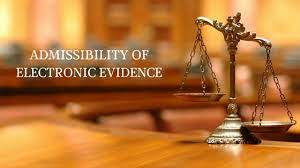THE ADMISSIBILITY & RELIABILITY OF ELECTRONIC EVIDENCE IN INDIAN COURTS & ITS LEGAL FRAMEWORK
AUTHOR – SUJITHA S, STUDENT OF SCHOOL OF LAW, SATHYABAMA INSTITUTE OF SCIENCE AND TECHNOLOGY
Best Citation – SUJITHA S, THE ADMISSIBILITY & RELIABILITY OF ELECTRONIC EVIDENCE IN INDIAN COURTS & ITS LEGAL FRAMEWORK, ILE JOURNAL OF EVIDENCE AND JURISPRUDENCE (ILE JEVJ), 1 (1) of 2023, Pg. 14-18, APIS – 3920 – 0049 | ISBN – 978-81-964391-3-2.
ABSTRACT
Digitalization of almost every field paves way in opting digitalization in administration which further involves the necessity and importance of the transfer of information and communication using the technological devices such as laptops, mobile phones, computers, fax machines, etc. Crime rate has been increasing rapidly in digital sector and electronic evidence turns out to be a mandatory thing during the due process of investigation. Therefore, it is evident that most of the evidence constituted in recent times are said to be in electronic format. Amidst of all these, there are many cybercrimes prevailing in recent times where the burden of proof could constitute probably in digital format therefore it falls under the category where it is necessary to admit the electronic evidence. Analysis of various provisions under The Evidence Act, 1872 and The Information Technology Act, 2000 relative to electronic evidence are to be covered in this paper and about the advancement of the judiciary to deal with the digitalization of the evidences issued.
This paper would clear out the ambiguity of the legal framework caused by the electronic evidence stating out the eligibility and the exceptions of its admissibility and reliability in the courts of India involving the judicial process. The outline of the obligations of Indian courts regarding the admission of electronic evidence with reference to the judgments by Hon’ble Supreme Court.
KEYWORDS – Evidence, Courts, Digital, Judiciary, Technology, Crime.
